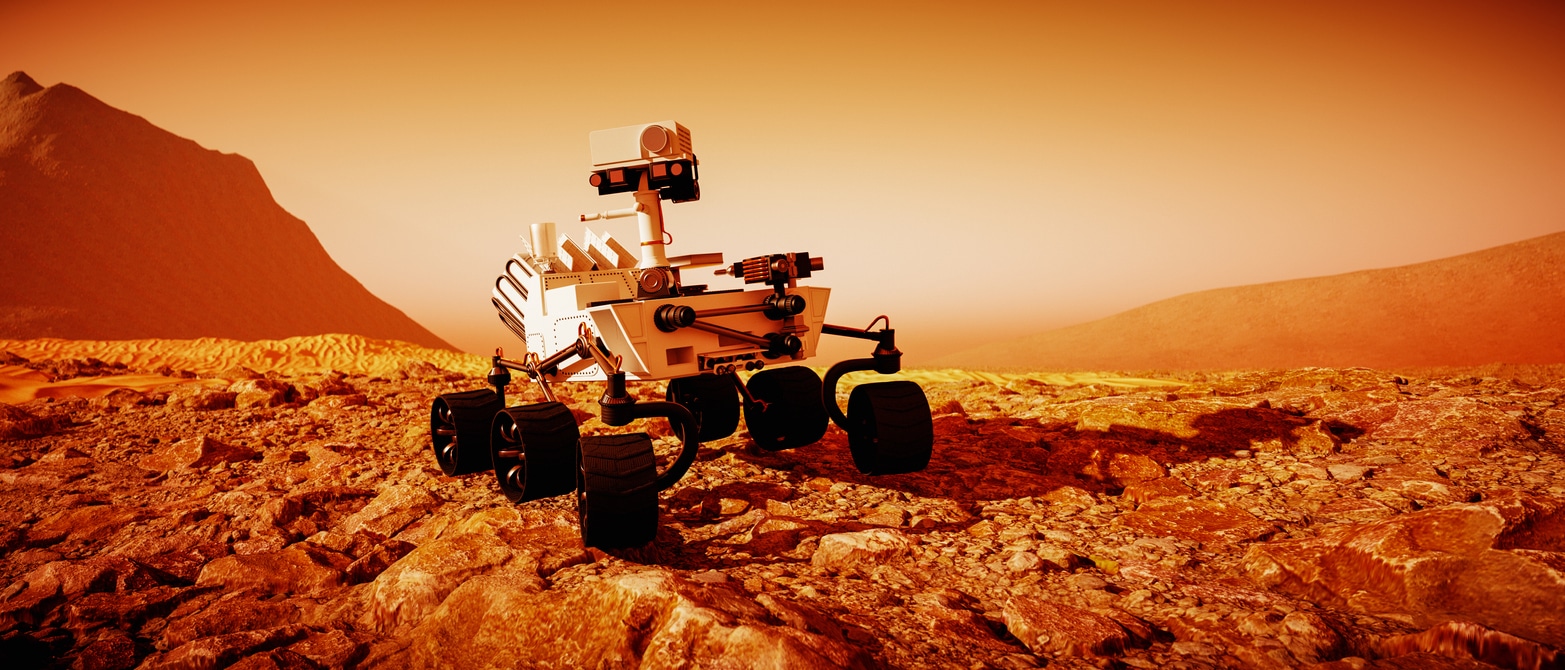
Sign up for smart news, insights, and analysis on the biggest financial stories of the day.
Last week Elon Musk predicted that SpaceX will be shuttling humans to Mars by 2026 as a key step towards establishing a “self-sustaining civilization” on the Red Planet.
Starting tomorrow an unmanned armada from the space programs of The United Arab Emirates, China, and the United States will attempt to get spacecraft to Mars.
Baby steps.
Where Crashing is a Coin Toss
Completing the 33.9 million mile journey is no small feat. Since the 1960s, more than half of missions to Mars have crashed or missed the planet altogether.
Now that the Super Bowl is over, maybe there will be 50/50 prop bets available on DraftKings on the following slate of missions:
- The UAE’s Hope orbiter will not land, but rather study Mars’ weather by circling the planet for two years. The $200 million project will produce the first full map of the planet’s atmosphere and is scheduled to arrive on the scene tomorrow.
- China’s Tianwen-1 has been shrouded in financial secrecy. The government won’t disclose the cost of the project, which includes a plan to land a radar-equipped rover that will scan 100 meters beneath the Martian surface. Tianwen-1 is set to arrive on Wednesday.
- The U.S.’ Perseverance rover, a $2.7 billion project, will land at the Jezero Crater, the site of an ancient river delta that scientists believe bears evidence of past life. The rover will seek out habitable conditions for life as well as direct evidence of microbial life, collecting samples for retrieval. The rover will land on February 18.
Is There Flight on Mars? The Perseverance also packs a special little punch. Inside the rover’s hardware is a box-shaped helicopter called the Ingenuity, which will try to fly in Mars’ super-thin atmosphere. If it succeeds, it would be the first successful flight of a rotary-wing aircraft on another planet.
The Takeaway:
For the UAE, the mission is about self-discovery as much as anything else. The UAE wants to test its ability to start a new industry from scratch. “When we say, for example, we’re going to establish a new sector in biotech, how do you go about doing that? This mission provided us a mechanism to go about doing that when we haven’t had it before,” al-Amiri said.











